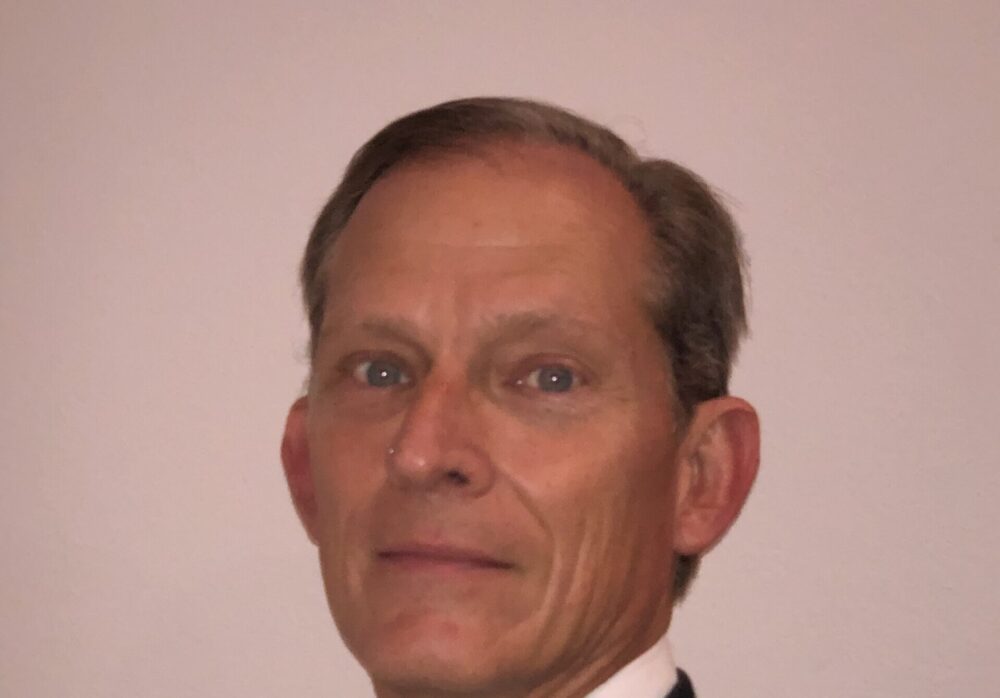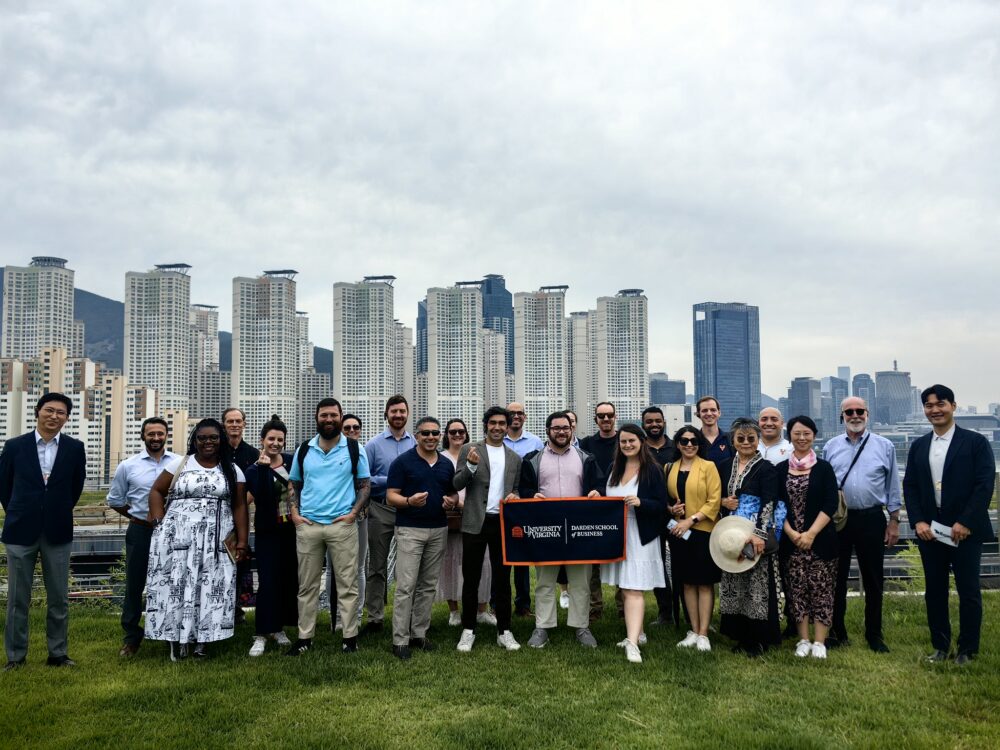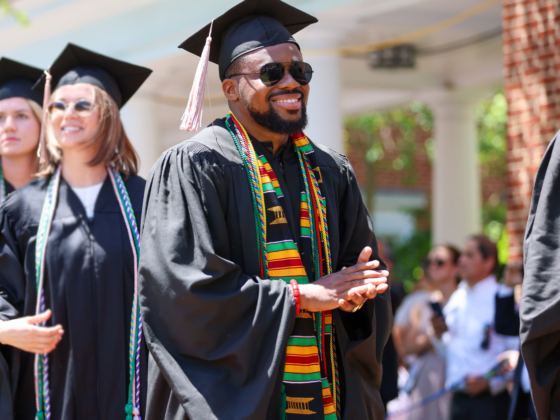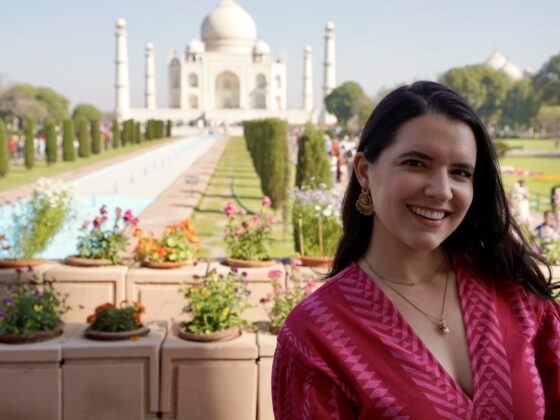Bruce Kuhnel (EMBA ‘25) graduated from the University of Alabama at Birmingham with a degree in mechanical engineering in 1991. He went on to obtain registration as a professional engineer in 1995 and has since had a dynamic career as an entrepreneur. Since 1998, he has spent his time assisting companies in forming new departments and even started his own company in 2012.
In June 2024, Bruce traveled to South Korea on a Global Residency. He recently shared more about his experience with CGI.
1. Tell us about yourself, Bruce!
I jokingly tell people I still have time to figure out what I want to do when I grow up. I recently sold a company twelve years after starting it and worked through a one-year transition period. I’ve started another company to help smaller companies with significant transitions as something complementary to finishing the executive MBA in May 2025. I enjoy doing this because it allows me to immediately use new subjects I’ve learned within the last year. I’ve narrowed my post-MBA plans to expanding this business and/or possibly acquiring another company more in line with my interests. My interests are in both automobiles and aviation.
My original degree was in mechanical engineering. I always thought I would use a professional engineering registration as a path to business ownership. It took a few years to gain the experience, courage and financial means to start a business, and I finally did in 2012. Another person and I started a design/build subcontracting firm specializing in mechanical, electrical and plumbing systems for commercial buildings. I enjoyed the process, and it was everything I thought it would be, but I find myself cautioning entrepreneurs to realize how all-encompassing this can become. It sounds great to say I sold out and worked through a transition, but it was and is a difficult period. There was a time I considered enrolling in an MBA program when I lived in Virgina, but I never made the time. Once I realized I would be transitioning, I decided this was the perfect time to fulfill this desire. I love learning and this executive MBA is everything I hoped it’d be.
2. What motivated you to select South Korea for your Global Residency?
My reason for choosing South Korea for my global residency was simply me looking for something different. I was fortunate to be able to travel to Europe several times, and I’ve had two opportunities to work in Egypt. Although South Korea wasn’t a top-of-mind destination, once I saw it as one of the choices, it was an easy decision. I knew they were a developed economy because of the common brands such as Hyundai, Samsung, and LG. I was not aware of SK Group prior to this course. Asia was someplace I always wanted to visit.
3. What was the most memorable experience you had during your GR?
My most memorable experience is what Seoul was not! I was expecting the city (and South Korea) to be blocks like Times Square in New York City, based on images I had seen of Seoul and Tokyo. It sounds weird, but with my interest in cars, the first thing I noticed on the ride from the airport to the hotel was the lack of modifications and color variety on any of the cars I saw. Most of what I saw were gray, white or black cars. This is a contrast with my everyday experiences in Florida. This seemed to manifest in how I viewed the culture overall. I thought people were very reserved, talked in hushed tones, and dressed very conservatively. The city was quiet, eerily so…but it was also very clean and safe. A contrast is there were protests within the vicinity of the hotel you could hear. The protests were orderly and appeared to be for improving working conditions for teachers.
4. How did your time in South Korea influence your understanding of global business practices?
If I could summarize what I came to understand about global business practices, it is simply to become keenly aware of the cultural differences and the specifics of the enterprise you might be working with. We were given the chance to prepare for the course by studying the cultural norms and much of the history. The government also plays a significant role in the policies surrounding many of the businesses and industries, and it would be important to know how these might affect your business.
5. What are some key differences you noticed between the business culture in South Korea and the U.S.?
Our cultural exposure included a palace tour, a visit to a temple, restaurants and a K-pop dance class. We were also able to venture away from the hotel and experience Seoul and Busan. These experiences helped with understanding who the South Koreans are as people. We had one presentation about South Korea’s K-pop industry (reinforced by the K-pop dance class!). One of the statements I read suggested the more traditional businesses were patriarchal, with foundations in Confucianism. Our preparation material noted that Korean society is influenced by Confucianism, Buddhism and more recently, Christianity.
My perception is that business culture is changing in South Korea, with an increasing desire for work-life balance. I wouldn’t say the United States is “ahead,” but diversity and work-life balance are probably further along in the U.S. Two speakers we listened to were younger, and one specifically talked about this. South Korea is known for longer work weeks and very high expectations to maintain competitiveness. There seem to be some undercurrents developing against the chaebols (family-owned government backed entities created during South Korea’s industrialization). I believe global leaders working with South Korea will have to be keenly aware of these differences between the traditional businesses — which are still very strong — and the newer industries, which will be less traditional.
6. In what ways did taking your studies abroad enhance your MBA program?
I consider the global residency experience valuable for the overall MBA experience and would highly recommend selecting at least one of the global courses. I would consider myself more qualified in roles which involved international business and would not limit it to South Korea. I believe anyone participating in a global residency will develop awareness for considering the specifics of the cultural or business environment in which they might be working.
I would recommend students take the preparation seriously and take the time to find those things when you are on-site or in the country.






